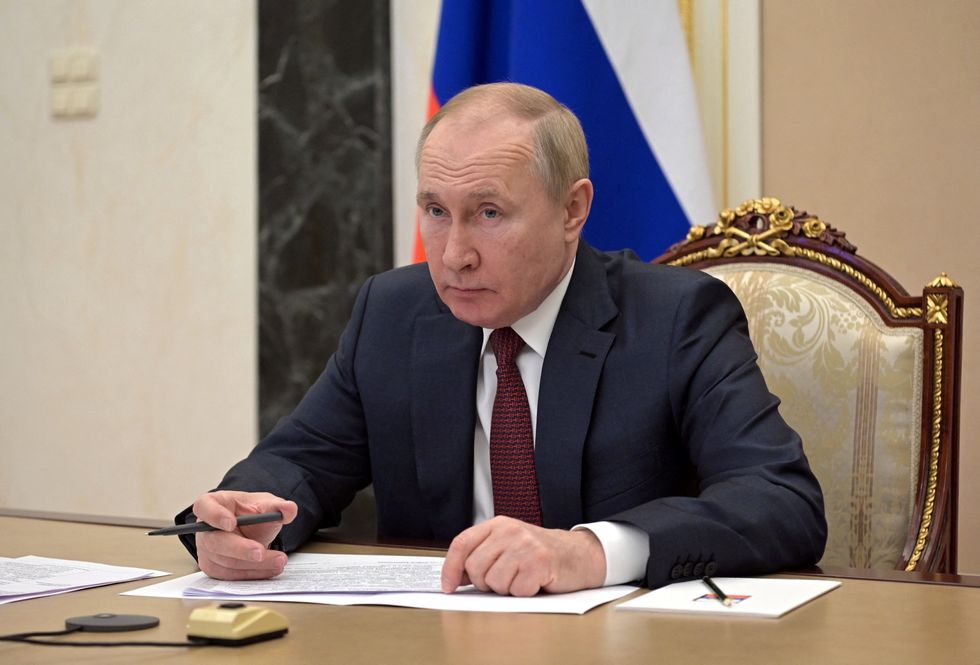UK needs to engage with Russia as ‘nuclear clock moving towards midnight’

Russian President Vladimir Putin attends a meeting with government members via a video link in Moscow, Russia
Sputnik/Alexei Nikolsky/Kremlin

The UK needs to find ways to engage with Russia as the “nuclear clock is moving towards midnight”, the former head of the Royal Navy Lord West of Spithead has warned.
As peers pressed the Government on what steps it is taking to reconcile differences between nuclear possessor states and non-nuclear possessor states at the Review Conference of the Parties to the Treaty on the Non-Proliferation of Nuclear Weapons, Lord West argued “something is going to go wrong” if the UK does not get links with Russia.
The Labour peer said: “We really must get methods of engaging with people like Russia, because otherwise something is going to go wrong and the nuclear clock is moving towards midnight.
“And we really must… really strain ourselves to get links with these countries so that something doesn’t go wrong because there’s no doubt for example, if we didn’t have nuclear weapons at all, and Russia had them with Mr Putin there, they would go ahead and do what they wanted to do. But we really have to make that effort.”
Former diplomat and independent crossbencher Lord Hannay of Chiswick also asked what the Government intends to do with regard to “strategic dialogue” among the five permanent members of the United Nations Security Council (P5) “for achieving a reduction in the risk of nuclear war”.
He went on: “What is the timetable for further meetings? And what is the content which the Government is putting into that dialogue?”
Foreign Office minister Lord Ahmad said he recognises “the vital importance that where we have issues of disagreement with the likes of other nuclear states, including Russia, we continue to engage and we are doing just that”.
He added: “Indeed, today, whilst it’s not specific to the issue of nuclear but the situation of security in Europe and Ukraine, we are meeting together through our Nato partners, my colleague minister Cleverly is present.
“He will be meeting with, amongst others, the Russian deputy foreign minister on the security issues.”
In a rare joint statement issued on January 3, the P5 (China, France, Russia, the United Kingdom, and the United States) said they “believe strongly” that the further spread of nuclear weapons must be avoided and that a nuclear war “cannot be won and must never be fought”.
The statement followed the announcement that the Tenth Review Conference of the Treaty on the Non-Proliferation of Nuclear Weapons (NPT), which was due to start on January 4, had been postponed again due to the pandemic.
Elsewhere, the United States warned Russia the stark choices over Ukraine were 'de-escalation and diplomacy or confrontation and consequences' speaking at a NATO meeting in Brussels.
US Deputy Secretary of State Wendy Sherman said "we all hope [Putin] will choose peace and security".